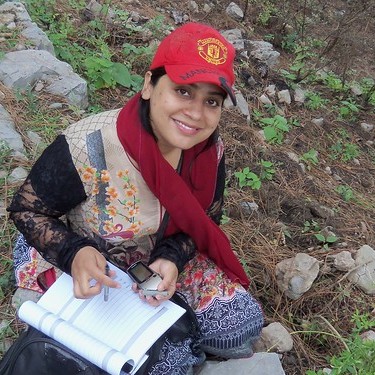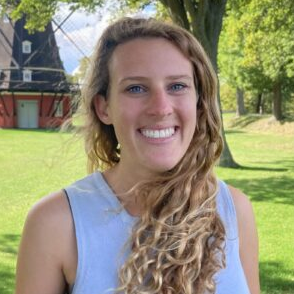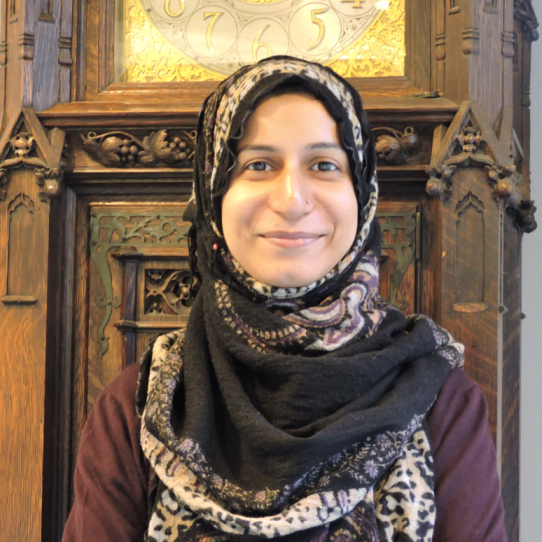About This Project
The Indian wolf is endangered in Pakistan, however, where they are found and how many are left is poorly understood. Our team will conduct a genetic survey of Indian wolves in Southern Pakistan to determine where they are found and gain insights into their present distribution and genetic diversity to better conserve them. A major goal of this project is to create awareness of the Indian wolf and support genetic research that is led and conducted by Pakistani scientists.
Ask the Scientists
Join The DiscussionWhat is the context of this research?
Pakistan has a rich diversity of wildlife; however, many of its species are endangered and face local extinction. In recent years, human-induced pressures have exacerbated the decline of wildlife populations in Pakistan, and significant gaps in their basic ecology and distribution further impede conservation efforts. The Indian wolf (Canis lupus pallipes) is recognized as endangered in Pakistan, however, key knowledge gaps in their population status and distribution hinders their conservation.
Recent genetic work revealed Indian wolves are the most evolutionarily distinct wolf population, and are only found in India and Pakistan. With only ~2,500 individuals left in India and an unknown number in Pakistan, efforts to conserve the remaining Indian wolf population is of great need.
What is the significance of this project?
Our project proposes the first non-invasive and large-scale genetic survey of Indian wolves in Pakistan.
First, this project will identify key areas where Indian wolves are still surviving. This information is crucial for targeted conservation efforts and habitat protection, ensuring that conservation resources are effectively allocated to areas where they are most needed.
Second, it will provide baseline data on their distribution and genetic diversity, allowing us to identify subpopulations that may be most threatened or genetically isolated.
Third, all lab work will be done in Pakistan and our team is primarily led by Pakistani scientists, all of which are women. This project helps build local scientific capacity for wildlife genetics and supports women in science in Pakistan.
What are the goals of the project?
Our goal is to conduct the first genetic survey of Indian wolves in major regions of Pakistan: South Punjab, Sindh and some parts of Balochistan. To accomplish this, we have active partnerships with the Government Forest Departments, universities, and various NGOs.
Field surveys will be conducted in selected sites of possible wolf presence in these provinces. Each team will collect scat (also known as poop) into a tube, which will be sent to Dr. Naqvi’s lab. We will extract the DNA and sequence the mitochondrial D-loop region. This region will be used to identify the species of each scat and assess mtDNA genetic diversity. We will share the findings with the public and publish results in scientific papers.
Budget
The budget will fund field work expenses and the lab work + genetic sequencing.
Field work expenses. Funds will pay students, researchers, and Forest department staff to survey our selected field sites. Field staff will be equipped with gear to collect non-invasive samples -- gloves, sample vials, bags for samples, notepads, and tape. All samples will be sent to Dr. Naqvi's lab at the National institute for Biotechnology and Genetic Engineering in Faisalabad.
Lab work and sequencing. Funds will pay an intern to extract DNA from the samples and do PCR. We will extract the DNA with QIAamp Fast DNA Stool Mini Kit, which will cover 150 extractions. We will use the Thermo Fisher Platinum Taq DNA Polymerase to run PCR. DNA samples will be sequenced at PINUM Cancer Hospital in Faisalabad, to amply a 402bp region of the mitochondrial Dloop region.
Outreach Materials: We will generate a report, maps, and printed materials for outreach on wolves.
Endorsed by
 Project Timeline
Project Timeline
The project's length will be 1 year. A first set of field surveys for first 3 months and will send the samples to NIBGE for DNA sequencing. A second set of field surveys will be continued in months 3-6 and samples will be sent to NIBGE for sequencing. We expect to have all sequence data by month 8, and will begin data analysis. In the last 4 months, we will compile reports and scientific manuscripts and share findings with the gov. and public
Sep 30, 2024
Project Launched
Jan 31, 2025
Finish first set of field surveys at selected sites in Pakistan and first sequencing batch
Apr 30, 2025
Finish second set of field surveys at selected sites in Pakistan
May 31, 2025
Finish all sequencing and start data analysis
Oct 31, 2025
Compile reports and scientific manuscript, share and outreach to government and public
Meet the Team
Affiliates
Hira Fatima
Dr. Hira Fatima is currently serving as Assistant Professor at University of Education (Attock Campus). Her research interests include conservation biology, spatial ecology, species distribution modelling applying non-invasive genetic sampling to understand meso-carnivore ecology. She is graduated from PMAS Arid Agriculture University studying meso-carnivores of Margalla Hills, Pakistan. During PhD for non-invasive genetic research work she got training scholarship in advanced molecular techniques for University of California, Davis. This project strengthened her research skillsets, and while at UC Davis she collaborated with graduate student (Dr. Lauren Hennelly) and devised project on “Assessing the status and distribution of wolves in Pakistan using genetics”. She was awarded a Rufford grant and successfully completed that project by actively managing team from Northern areas of Pakistan through on-the-ground training in non-invasive genetic sampling of carnivores. Later on, in the continuation of that project she also successfully secured IDEA WILD project. After her PhD., she was a Postdoctoral fellow at University of Okara which enhanced her professional expertise of research and academic experience. She has experience of overcoming challenges of conducting research in a developing country and aims to apply genetic tools to help conserve wildlife in Pakistan
Lauren Hennelly
Dr. Lauren Hennelly is a postdoctoral scientist at the University of Copenhagen in Denmark and a Research Associate at the Smithsonian’s National Zoo and Conservation Biology Institute in Washington D.C. She uses genomic tools to study the evolutionary history and ecology of various species and applies this knowledge to conservation. She has led and participated in multiple scientific studies on wolves in India and Pakistan, where she has conducted field research and has been working with collaborators for the last ten years. She is a team member of the IUCN Red List Assessment of the Himalayan wolf and Indian wolf, and a member of the IUCN Canid Specialist Group’s Taxonomy Task Force. She has received multiple prestigious awards, including a Fulbright fellowship to India and two National Science Foundation fellowships. She is passionate about building long-term, equitable partnerships and scientific outreach to better conserve endangered species.
Rubab Zahra Naqvi
Dr. Rubab Zahra Naqvi is a senior scientist (http://www.nibge.org/profile.aspx?PID=116) at National Institute for Biotechnology and Genetic Engineering (NIBGE), College of Pakistan Institute of Engineering and Applied Sciences (PIEAS), Faisalabad, Pakistan. Her area of interest is Agricultural Biotechnology with a major focus on Molecular Biology, Genomics and Bioinformatics. She holds a PhD Biotechnology Degree and has overall more than 12 years of thriving research experience. She is the winner of prestigious “Norman E Borlaug” Fellowship from the United States Department of Agriculture (USDA) and she worked at the Institute for Genomics, Biocomputing, & Biotechnology, Mississippi State University, Mississippi, United States. She also enriched her expertise by working at the Boyce Thompson Institute of Plant Research, Cornell University, New York, United States.
She is motivated to pursue her research as a creative and knowledgeable resource in the field of biotechnology and genomics for the betterment of agriculture and the climate of Pakistan. Hailing from Faisalabad, the textile hub of Punjab, Pakistan, Dr. Naqvi is not only a dedicated scientist but also a versatile individual with interests in traveling, cooking, counseling, painting, and hiking.
Rabbya Shoaib
With an academic background in international human rights law, Rabbya possesses a decade-long experience in designing and implementing development initiatives across Pakistan. She is a successful fundraiser and government engagement specialist, having played a pivotal role in the introduction of more than 10 transformative laws and policies. Additionally, she has secured partnerships with contracts and MOUs for landscape restoration and species conservation in Punjab, Khyber Pakhtunkhwa, and Gilgit-Baltistan.
Rabbya’s experience includes collaborations with provincial and federal ministries, co-developing and implementing projects with NGOs, INGOs (such as the European Union and UNDP), and conservation organizations (The Aspinall Foundation, NTNC Nepal, Global Rewilding Alliance, etc). Rabbya will ensure the timely implementation and eventual scale-up of the proposed project while sharing research results with government departments to advocate for the integration of successful strategies into official conservation planning. She also oversees the deployment and monitoring of funds to guarantee transparent and effective project execution.
Omar Khayam Husain
Omar is a dedicated field biologist with extensive experience in ecological research and conservation in both Pakistan and California. In Pakistan, he led impactful sustainability initiatives, including urban forest development and mangrove conservation, while curating exhibits on the country's natural history at its first science center. As an environmental educator, Omar reached over 10,000 students, fostering awareness of climate change and biodiversity through nature documentary production and dissemination.
In California, Omar has received professional field biology training and experience, conducting ecological surveys, biological monitoring, and species conservation efforts for state and federal protected species. With a commitment to advancing global biodiversity conservation, Omar is dedicated to creating inroads for international researchers to expand their work into Pakistan. By fostering collaborative, community-driven conservation programs, he aims to bridge scientific innovation and local engagement to implement sustainable ecological solutions.
Additional Information
Our team is well equipped to complete our proposed project. Dr. Fatima has already successfully completed a non-invasive genetic survey of carnivores in Margalla HIlls National Park in Pakistan. Along with a team including Dr. Hennelly, we also conducted a non-invasive genetic survey of wolves in the high mountains of Northern Pakistan back in 2019.
Both of these projects provided important data to help conserve wildlife in Pakistan. Notably, our insights from these two genetic survey was incorporated into six scientific papers on wildlife in Pakistan, ranging from on wolves, leopard cats, red foxes, snow leopards, and other small carnivores.
Video taken by Lauren Hennelly during our field survey for wolves in Gilgit Baltistan, Pakistan.
~~~~~~~~~~~~~~~~~~~~~~~~~~~~~~~~~~~~~~~~~~~~~~~~~~~~~~~~~~~~~~~~~~~~~~~~
For our field surveys for this Experiment Grant project, we will take notes of Indian wolf presence (sightings) and interview local people on wolf presence, killings of livestock, knowledge of the species, and how long ago wolves lived in the region. Along with the genetic study, this information will be invaluable for assessing the status and where Indian wolves are living to help develop plans to conserve them.
Lastly, all scats and tissue/blood will be cataloged and properly preserved in Pakistan for future research. Thus, future graduate students and researchers in Pakistan can study Indian wolf diet with genetically confirmed scats and conduct further sequencing of the nuclear DNA, or the entire genome, to investigate genomic diversity and their evolutionary history.
Video taken by Lauren Hennelly while conducting field work on Indian wolves in Maharashtra, India
Project Backers
- 45Backers
- 104%Funded
- $6,540Total Donations
- $145.33Average Donation






